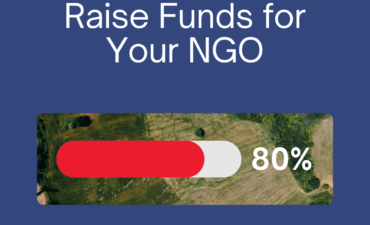Introduction: Sample Proposal for NGO-Sponsored Coding Training Program for Underprivileged Children in Urban Slums, Urban slums harbor a significant proportion of the world’s underprivileged children, facing multifaceted challenges that impede their holistic development and future prospects. Amidst these adversities, the transformative power of education stands as a beacon of hope, offering a pathway towards breaking the cycle of poverty. In recognition of this potential, we present a compelling proposal for an NGO-sponsored coding training program tailored specifically for underprivileged children residing in urban slums.
As society navigates the digital age, proficiency in coding emerges as a fundamental skill, not merely for economic empowerment but also for fostering innovation, critical thinking, and problem-solving abilities. However, access to quality educational resources remains a stark privilege, disproportionately eluding those in marginalized communities. By addressing this disparity head-on, our proposal seeks to empower vulnerable children with the tools and knowledge to navigate the digital landscape, thereby opening doors to a myriad of opportunities previously beyond their reach.
This proposal underscores not only the imperative of providing equitable access to education but also the transformative potential of investing in the most marginalized segments of society. Through strategic collaboration and innovative programming, we aim to catalyze a ripple effect of positive change, enriching the lives of underserved children and contributing to the broader agenda of sustainable development and social inclusion.
In the following sections, we delineate the rationale, objectives, methodology, and implementation plan of our proposed coding training program. Grounded in principles of equity, inclusion, and community engagement, this initiative embodies our collective commitment to building a more just and equitable world where every child, regardless of background, has the opportunity to thrive.
In today’s increasingly digitized world, proficiency in coding has evolved from a specialized skill to an indispensable asset with far-reaching implications across various domains. Understanding the importance of coding skills is paramount in recognizing the transformative impact it can have on individuals, communities, and society at large. Here are some key reasons highlighting the significance of coding skills:
- Empowerment and Economic Opportunities:
- Coding proficiency empowers individuals with the ability to create, innovate, and problem-solve in the digital realm.
- In an era where technology-driven industries dominate the job market, coding skills open doors to a plethora of lucrative career opportunities, including software development, web design, data analysis, and more.
- By equipping individuals with coding skills, particularly those from underprivileged backgrounds, we can bridge the digital divide and provide pathways to socioeconomic advancement and financial independence.
- Fostering Innovation and Creativity:
- Coding fosters a culture of innovation and creativity, enabling individuals to conceptualize and develop solutions to complex problems.
- Through coding, individuals gain the ability to bring their ideas to life, whether it be creating mobile apps, designing websites, or developing software solutions that address societal challenges.
- Cultivating coding skills nurtures an entrepreneurial mindset, encouraging individuals to think outside the box and pursue innovative ventures that drive positive change.
- Critical Thinking and Problem-Solving:
- Coding inherently involves logical thinking, algorithmic reasoning, and systematic problem-solving, which are transferable skills applicable across various disciplines and real-world scenarios.
- By engaging in coding exercises and projects, individuals develop resilience, perseverance, and the ability to approach challenges methodically, enhancing their capacity to navigate complex problems in both academic and professional settings.
- Global Connectivity and Collaboration:
- In an interconnected world, coding serves as a universal language that facilitates communication and collaboration across geographical boundaries.
- Through open-source platforms and online communities, individuals can leverage coding skills to collaborate on projects, share knowledge, and contribute to collective endeavors that have global impact.
Purpose of the Proposal:
(Sample Proposal for NGO-Sponsored Coding Training Program for Underprivileged Children in Urban Slums)
The purpose of this proposal is twofold: to address the pressing need for equitable access to coding education among underprivileged children in urban slums and to harness the transformative potential of coding skills in empowering marginalized communities. By establishing a comprehensive coding training program tailored specifically for urban slum children, we aim to achieve the following objectives:
- Empowerment and Skill Development:
- Provide underprivileged children with access to high-quality coding education, equipping them with essential skills needed to thrive in the digital age.
- Foster a learning environment that nurtures creativity, critical thinking, and problem-solving abilities, empowering children to realize their full potential and pursue diverse career pathways in technology and innovation.
- Social Inclusion and Equity:
- Address systemic inequalities by offering coding education to children residing in urban slums, who often lack access to educational resources and opportunities.
- Promote inclusivity and diversity within the technology sector by creating pathways for underrepresented groups to enter and excel in STEM-related fields, thereby fostering a more equitable and representative workforce.
- Community Engagement and Sustainable Development:
- Cultivate partnerships with local stakeholders, including community leaders, schools, and NGOs, to ensure the program’s relevance, sustainability, and impact within the target communities.
- Foster a culture of lifelong learning and community empowerment, where children and their families are actively engaged in the educational process, leading to broader social and economic benefits for urban slum communities.
In summary, this proposal seeks to leverage the power of coding education as a catalyst for social change, empowering underprivileged children with the skills, opportunities, and resources needed to build a brighter future for themselves and their communities. Through strategic collaboration, innovative programming, and a steadfast commitment to equity and inclusion, we aspire to create a more just and equitable society where every child has the chance to thrive and succeed.
Background
(Sample Proposal for NGO-Sponsored Coding Training Program for Underprivileged Children in Urban Slums)
- Statistics on Urban Slum Population:
Urban slums represent a significant segment of the global population, with millions of individuals residing in substandard housing conditions characterized by overcrowding, inadequate sanitation, and limited access to basic services. According to the United Nations, approximately one billion people worldwide live in slums, with this number expected to rise significantly in the coming decades due to rapid urbanization and population growth.
In many urban centers, slum populations are particularly pronounced, with cities in developing regions bearing the brunt of this demographic phenomenon. For instance, in regions such as sub-Saharan Africa, South Asia, and Latin America, slum dwellers constitute a sizable proportion of the urban population, facing myriad socio-economic challenges stemming from poverty, unemployment, and social exclusion.
Challenges Faced by Children in Slum Areas:
Children growing up in urban slums confront a multitude of challenges that significantly impact their well-being, development, and future prospects. These challenges include:
- Limited Access to Education: Many children in slum areas lack access to quality education due to factors such as inadequate school infrastructure, overcrowded classrooms, and financial barriers that prevent families from affording school fees and supplies.
- Health Risks and Malnutrition: Slum environments often lack access to clean water, sanitation facilities, and healthcare services, exposing children to heightened risks of infectious diseases, malnutrition, and other health ailments.
- Violence and Exploitation: Children in slum areas are vulnerable to various forms of violence, exploitation, and abuse, including child labor, trafficking, and involvement in criminal activities due to economic hardships and social instability.
- Psychological Stress and Trauma: Living in impoverished and unsafe environments can take a toll on children’s mental health, leading to stress, anxiety, and trauma resulting from exposure to violence, insecurity, and social marginalization.
- Limited Opportunities for Personal Growth: Children in slum areas often lack access to extracurricular activities, cultural enrichment programs, and recreational facilities that are essential for their holistic development and self-expression.
- Existing Initiatives (if any) and Their Impact:
Despite the formidable challenges faced by children in slum areas, various initiatives and interventions have been implemented by governments, NGOs, and community-based organizations to address their needs and improve their living conditions. These initiatives may include:
- Educational Outreach Programs: NGOs and community groups often establish informal schools, tutoring centers, and literacy programs in slum areas to provide educational opportunities for children who are unable to attend formal schools.
- Healthcare Services and Nutrition Programs: Health-focused NGOs and agencies collaborate with local communities to provide access to healthcare services, immunizations, nutritional support, and maternal and child health programs aimed at improving the health outcomes of children in slum areas.
- Vocational Training and Livelihood Programs: Some organizations offer vocational training programs, entrepreneurship workshops, and skill-building initiatives targeted at empowering youth and adolescents in slum areas with employable skills and income-generating opportunities.
- Community Empowerment and Advocacy: Advocacy groups and grassroots organizations work to empower slum communities through community organizing, advocacy campaigns, and awareness-raising activities aimed at promoting their rights, dignity, and inclusion in decision-making processes.
While these initiatives have made meaningful contributions to improving the lives of children in slum areas, significant challenges persist, necessitating continued efforts and innovative approaches to address the root causes of poverty, inequality, and social exclusion in urban settings.
Objectives
(Sample Proposal for NGO-Sponsored Coding Training Program for Underprivileged Children in Urban Slums)
- Primary Goal:
The primary goal of the proposed coding training program for underprivileged children in urban slums is to empower participants with essential coding skills, thereby fostering their socio-economic empowerment and enhancing their prospects for a brighter future. By equipping children from marginalized communities with the knowledge and tools to navigate the digital landscape, our overarching aim is to break the cycle of poverty and facilitate their integration into the rapidly evolving digital economy.
- Specific Objectives:
- Provide Access to Quality Education: Ensure equitable access to high-quality coding education for children residing in urban slums, regardless of socio-economic background or prior educational attainment.
- Foster Skill Development and Innovation: Cultivate coding proficiency among participants, fostering critical thinking, problem-solving abilities, and creativity essential for innovation and technological advancement.
- Promote Inclusivity and Diversity: Create a supportive and inclusive learning environment that celebrates diversity and promotes gender equality, ensuring equal opportunities for all participants to excel in STEM-related fields.
- Enhance Career Readiness: Equip participants with practical coding skills and industry-relevant knowledge, enhancing their employability and preparing them for future career opportunities in technology-related sectors.
- Foster Community Engagement: Engage families, schools, and local stakeholders in the educational process, fostering a sense of community ownership and collective responsibility for the program’s success and sustainability.
Expected Outcomes
- Increased Coding Proficiency: Participants demonstrate improved coding proficiency and fluency, as evidenced by their ability to develop basic software applications, websites, and digital projects independently.
- Expanded Career Opportunities: Graduates of the program have enhanced access to diverse career pathways in technology-related fields, including software development, web design, digital marketing, and entrepreneurship.
- Empowered and Confident Learners: Participants exhibit increased self-confidence, resilience, and a growth mindset, empowering them to overcome challenges and pursue their aspirations with determination and perseverance.
- Social Impact and Community Transformation: The program contributes to broader social and economic development within urban slum communities, fostering a culture of learning, innovation, and empowerment that transcends individual participants and extends to their families and communities.
- Sustainable Change and Long-term Impact: The program lays the foundation for sustainable change by building local capacity, fostering partnerships, and leveraging community resources to ensure the continued success and scalability of coding education initiatives in urban slum settings.
Proposed Program (Sample Proposal for NGO-Sponsored Coding Training Program for Underprivileged Children in Urban Slums)
- Program Structure:
The coding training program for underprivileged children in urban slums is designed to be comprehensive and structured, encompassing a carefully crafted curriculum, innovative teaching methodologies, and a flexible duration and schedule to accommodate the needs of participants. The program structure is outlined as follows:
- Curriculum Overview:
- The curriculum is designed to introduce participants to fundamental concepts of coding and computer science, gradually progressing to more advanced topics as they gain proficiency.
- Key areas of focus include programming languages such as Scratch, Python, HTML/CSS, and JavaScript, as well as concepts such as algorithms, data structures, and problem-solving techniques.
- The curriculum is developed in consultation with industry experts, educators, and stakeholders to ensure relevance, applicability, and alignment with industry standards and best practices.
- Teaching Methodology:
- The teaching methodology emphasizes experiential learning, hands-on projects, and collaborative activities to engage participants actively in the learning process.
- Trained instructors, including volunteer professionals from the technology sector, facilitate interactive lessons, workshops, and coding challenges, providing personalized support and guidance to meet the diverse needs of participants.
- The program incorporates a mix of online resources, educational games, and real-world examples to make learning coding accessible, enjoyable, and relevant to participants’ lived experiences.
- Duration and Schedule:
- The duration of the program is flexible, ranging from several weeks to several months, depending on the depth and breadth of the curriculum and the availability of resources.
- Classes are typically conducted on a regular basis, with sessions held after school hours or on weekends to accommodate participants’ existing commitments and responsibilities.
- The program may be delivered in modules or phases, with each phase focusing on specific learning objectives and culminating in project-based assessments or showcases to demonstrate participants’ progress and achievements.
Overall, the program structure is designed to provide a supportive and enriching learning experience that empowers participants with essential coding skills, fosters their passion for technology, and prepares them for future success in the digital age. Through a combination of structured curriculum, innovative teaching methodologies, and flexible scheduling, the program aims to maximize participant engagement, learning outcomes, and long-term impact within urban slum communities.
Target Audience (Sample Proposal for NGO-Sponsored Coding Training Program for Underprivileged Children in Urban Slums)
Target Audience (Describe):
The target audience for the coding training program comprises underprivileged children residing in urban slums, particularly those facing barriers to accessing quality education and technology-related resources. This includes children from marginalized communities, low-income families, and vulnerable populations who may not have had previous exposure to coding or computer science education. The program aims to reach children of varying ages, backgrounds, and levels of educational attainment, providing equitable opportunities for all to learn and excel in the digital age.
Location and Facilities:
The coding training program will be strategically located within urban slum communities to maximize accessibility and participation among the target audience. Suitable venues for program delivery may include community centers, schools, NGO facilities, or other accessible spaces within the slum area. These venues will be equipped with necessary facilities such as computers, internet access, learning materials, and comfortable seating arrangements to facilitate effective teaching and learning. Additionally, efforts will be made to ensure that the chosen locations are safe, inclusive, and conducive to fostering a positive learning environment for participants.
Staffing and Training:
The success of the coding training program relies heavily on the expertise, dedication, and passion of its staff members and volunteers. The program will employ a team of qualified instructors, including educators with experience in teaching coding and computer science, as well as professionals from the technology sector who can provide real-world insights and mentorship to participants. Staff members will undergo rigorous training and professional development to enhance their teaching skills, cultural competency, and understanding of the unique needs of underprivileged children in urban slums. Additionally, volunteers from the local community and beyond will be recruited to supplement the program staff, providing additional support and mentorship to participants.
Collaboration and Partnerships:
Collaboration and partnerships are essential components of the coding training program, enabling it to leverage resources, expertise, and networks to maximize its impact and reach. The program will seek to collaborate with a diverse range of stakeholders, including:
- NGOs and Community Organizations: Partnering with local NGOs and community-based organizations will help facilitate outreach, recruitment, and program implementation within urban slum communities. These organizations may also provide additional resources, infrastructure, and support services to enhance the program’s effectiveness and sustainability.
- Schools and Educational Institutions: Collaborating with schools and educational institutions located in or near urban slum areas will enable the program to reach a larger number of children and integrate coding education into existing school curricula or extracurricular activities. Schools may also serve as valuable partners in recruiting participants, providing facilities, and mobilizing support from teachers and parents.
- Technology Companies and Industry Partners: Engaging technology companies and industry partners can provide valuable resources, expertise, and mentorship opportunities for program participants. These partners may offer internships, job shadowing experiences, or guest lectures to expose participants to real-world applications of coding and computer science in the workplace.
- Government Agencies and Policy Makers: Collaborating with government agencies and policymakers can help advocate for policies and initiatives that support coding education and digital literacy efforts within urban slum communities. By engaging with key stakeholders at the local, regional, and national levels, the program can help shape broader initiatives aimed at bridging the digital divide and promoting equitable access to technology education for all children.
Implementation Plan (Sample Proposal for NGO-Sponsored Coding Training Program for Underprivileged Children in Urban Slums)
- Phases of Implementation:
The implementation of the coding training program for underprivileged children in urban slums will be organized into distinct phases, each focusing on specific objectives and activities to ensure smooth and effective program delivery. The phases of implementation include:
Planning and Preparation:
- Conduct a needs assessment and stakeholder analysis to identify target communities, assess existing resources, and determine program priorities.
- Develop a detailed implementation plan, including program goals, objectives, curriculum design, staffing requirements, and budget allocation.
- Establish partnerships and collaborations with relevant stakeholders, including NGOs, schools, community organizations, and technology companies, to mobilize support and resources for program implementation.
Recruitment and Outreach:
- Launch outreach and awareness campaigns to promote the program and recruit participants from urban slum communities.
- Collaborate with local partners and community leaders to identify and engage children who would benefit most from the program, taking into account factors such as age, gender, socio-economic status, and educational background.
- Conduct orientation sessions and information sessions for participants and their families to explain the program goals, expectations, and benefits.
Program Delivery and Implementation:
- Commence coding training sessions according to the established curriculum and schedule, ensuring that classes are engaging, interactive, and tailored to the needs of participants.
- Provide ongoing support and mentorship to participants, including individualized assistance, feedback, and encouragement to facilitate their learning and skill development.
- Organize supplementary activities, workshops, and guest lectures to complement classroom instruction and expose participants to diverse aspects of coding and computer science.
Monitoring and Evaluation:
- Implement a robust monitoring and evaluation framework to assess program progress, track participant outcomes, and identify areas for improvement.
- Collect qualitative and quantitative data through surveys, assessments, and participant feedback to measure the effectiveness and impact of the program on participants’ learning, confidence, and socio-economic empowerment.
- Regularly review program implementation against established targets and benchmarks, making adjustments as needed to ensure that the program remains responsive to the evolving needs and priorities of participants and the community.
Sustainability and Scale-Up:
- Develop strategies for sustainability and scale-up, including securing long-term funding, building local capacity, and fostering community ownership and support for the program.
- Explore opportunities to replicate and expand the program to additional urban slum communities, leveraging lessons learned and best practices to maximize impact and reach a broader audience of underprivileged children.
Timeline:
The implementation timeline for the coding training program will be structured to accommodate the various phases of planning, recruitment, program delivery, and evaluation. While the specific timeline may vary depending on factors such as funding availability, resource mobilization, and community engagement, a typical timeline might include the following key milestones:
- Phase 1: Planning and Preparation (2-3 months)
- Phase 2: Recruitment and Outreach (1 month)
- Phase 3: Program Delivery and Implementation (6-12 months)
- Phase 4: Monitoring and Evaluation (ongoing throughout the program)
- Phase 5: Sustainability and Scale-Up (ongoing)
It is important to note that the timeline may be adjusted as needed to accommodate unforeseen challenges, ensure program quality, and maximize impact within the target communities. Regular review and adaptation of the implementation plan will be essential to maintaining program effectiveness and relevance over time.
Monitoring and Evaluation Plan (Sample Proposal for NGO-Sponsored Coding Training Program for Underprivileged Children in Urban Slums)
Monitoring and Evaluation Plan for NGO-Sponsored Coding Training Program for Underprivileged Children in Urban Slums:
Objectives of Monitoring and Evaluation:
- To assess the implementation fidelity of the coding training program and ensure adherence to program goals and objectives.
- To measure the effectiveness of program activities in enhancing participants’ coding skills, confidence, and socio-economic empowerment.
- To identify strengths, weaknesses, and areas for improvement in program design, delivery, and impact.
Indicators and Data Collection Methods:
| Output Indicators:
|
· Number of underprivileged children enrolled in the program.
· Attendance rates of participants in coding training sessions. · Completion rates of program modules or phases.
|
| Outcome Indicators:
|
· Changes in participants’ coding proficiency and skills as demonstrated through coding projects and assessments.
· Participants’ self-reported confidence levels in coding and problem-solving abilities. · Participant satisfaction and feedback on program content, delivery, and relevance.
|
| Data Collection Methods:
|
· Pre-program and post-program assessments to measure baseline and post-intervention coding skills, confidence levels, and socio-economic status.
· Attendance records maintained by program staff or volunteers. · Surveys, interviews, and focus group discussions with participants to gather qualitative feedback on their experiences and perceptions of the program.
|
| Data Collection Procedures and Responsibilities: | · Designate a Monitoring and Evaluation Officer responsible for overseeing data collection, entry, and management processes.
· Develop standardized data collection protocols and tools, ensuring consistency and reliability in data collection procedures. · Train program staff and volunteers on data collection methods and tools, emphasizing the importance of accurate and timely data collection. · Establish regular monitoring mechanisms to track program implementation, outputs, and outcomes, with clear roles and responsibilities assigned to relevant stakeholders.
|
| Data Analysis and Reporting:
|
· Conduct regular data analysis to track progress against program indicators and benchmarks.
· Utilize appropriate statistical and qualitative analysis techniques to derive insights from collected data. · Prepare periodic monitoring reports and updates for program stakeholders, highlighting key findings, achievements, challenges, and recommendations for improvement. · Disseminate evaluation findings through various channels, including written reports, presentations, and stakeholder meetings, to inform decision-making and promote transparency and accountability.
|
| Utilization of Findings and Continuous Improvement: | · Engage program stakeholders in reviewing and interpreting evaluation findings, soliciting feedback, and identifying priority areas for action and improvement.
· Use evaluation findings to adapt and refine program activities, content, and delivery methods to better meet the needs and preferences of participants and optimize program effectiveness. · Foster a culture of learning, reflection, and continuous improvement within the program team, encouraging ongoing dialogue and collaboration to ensure that the program remains responsive and relevant to the evolving needs of the target beneficiaries and the community. |
By implementing a comprehensive monitoring and evaluation plan, the NGO-sponsored coding training program can enhance its accountability, transparency, and impact, ultimately contributing to the positive socio-economic development of underprivileged children in urban slums.
Budget Allocation
| Category | Description | Amount (USD) |
| Personnel | Salaries for program staff and instructors | $20,000 |
| Training Materials | Coding books, software licenses, and materials | $5,000 |
| Equipment | Computers, laptops, and peripherals | $15,000 |
| Facilities | Rental of venue, utilities, and maintenance | $10,000 |
| Transportation | Transportation for participants, staff, and volunteers | $3,000 |
| Outreach and Promotion | Marketing materials, advertisements, and outreach activities | $2,000 |
| Monitoring and Evaluation | Data collection tools, software, and analysis | $4,000 |
| Contingency | Unforeseen expenses and emergency fund | $3,000 |
| Total | $62,000 |
Please note that these amounts are dummy figures and should be adjusted based on the actual budget requirements and funding availability for the program.
Sustainability Plan (Sample Proposal for NGO-Sponsored Coding Training Program for Underprivileged Children in Urban Slums)
- Long-term Vision:
The sustainability plan for the NGO-sponsored coding training program for underprivileged children in urban slums is anchored in a long-term vision of lasting impact and empowerment. Our goal is to create a sustainable model that not only addresses the immediate needs of participants but also ensures their continued access to coding education and support in the years to come. Looking ahead, we envision a future where every child in urban slums has equitable opportunities to thrive in the digital age, breaking the cycle of poverty and transforming their communities through technology and education.
- Strategies for Continuity:
To ensure the continuity and longevity of the coding training program, we will implement the following strategies:
- Institutional Partnerships: Forge strategic partnerships with educational institutions, government agencies, and other stakeholders to integrate coding education into formal school curricula and secure sustainable funding and resources for program expansion and maintenance.
- Alumni Network and Mentorship: Establish an alumni network and mentorship program to provide ongoing support, guidance, and networking opportunities for program graduates, empowering them to pursue further education and career pathways in technology-related fields.
- Train-the-Trainer Programs: Develop capacity-building initiatives and train-the-trainer programs to empower local educators, community leaders, and volunteers with the skills and knowledge to continue delivering coding education and support within their communities.
- Community Ownership and Leadership: Foster community ownership and leadership by engaging local stakeholders in program planning, implementation, and decision-making processes, ensuring that the program remains responsive to the evolving needs and priorities of the community.
Community Involvement and Support:
Community involvement and support are integral to the sustainability of the coding training program. We will actively engage and mobilize community members, parents, schools, and local organizations to contribute to the success and continuity of the program. Key strategies for community involvement and support include:
- Parent Engagement: Empower parents and caregivers to play an active role in their children’s education by providing opportunities for involvement in program activities, workshops, and parent-teacher meetings to reinforce learning and support their children’s academic and personal development.
- Volunteerism and Mentorship: Recruit and train volunteers from the local community, including technology professionals, educators, and youth leaders, to serve as mentors, tutors, and role models for program participants, providing additional support and guidance outside of formal classroom settings.
- Advocacy and Awareness: Raise awareness about the importance of coding education and digital literacy within the community through outreach campaigns, workshops, and community events, mobilizing support and advocacy for continued investment in educational initiatives that benefit underprivileged children.
By harnessing the collective power and resources of the community, we can create a sustainable ecosystem that empowers underprivileged children in urban slums to thrive and succeed in the digital age, laying the groundwork for a brighter and more inclusive future for all.
In conclusion, the NGO-sponsored coding training program for underprivileged children in urban slums represents a pivotal opportunity to catalyze positive change and empower the next generation. By equipping these children with essential coding skills, we not only unlock doors to a brighter future for them but also foster innovation, economic empowerment, and social inclusion within their communities.
Through collaborative efforts, dedication, and a steadfast commitment to equity, this program has the potential to ignite transformative impact, paving the way for a more prosperous and equitable society where every child has the chance to thrive. Together, let’s build a future where no child is left behind, and where opportunity knows no bounds.
Related Good Reads, Link
Hey, STEAL our Best Premium Content For Absolutely Free, Check Out the Links below
HOPE these will add value to your existing skills and knowledge
Our information bears no cost (it’s absolutely FREE), don’t let valuable information slip away.
Join our community of avid readers who are always in the know. Subscribe to our website; stay connected and engaged with the latest news, trends, and developments by subscribing today.
(PUSH the bell ICON)
Leverage the power of knowledge to propel your organization to new heights. Don’t miss out to explore our content
- Latest Funds for NGOs,
- NGO Jobs
- Resources (Helpful Guides and Courses)
- Premium Resources
- NGO related articles
Empowering Humanity through Funds, Resources and Collective Action
Sharing is Appreciated









